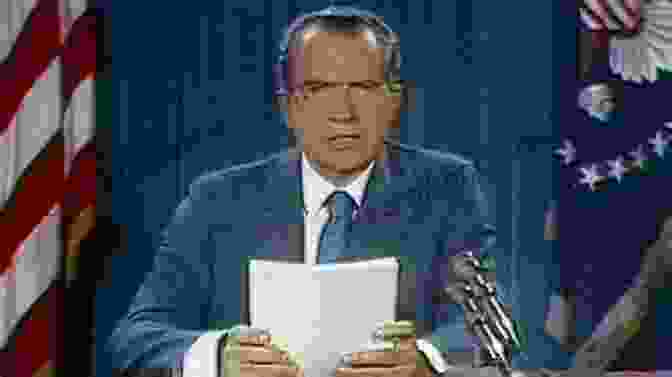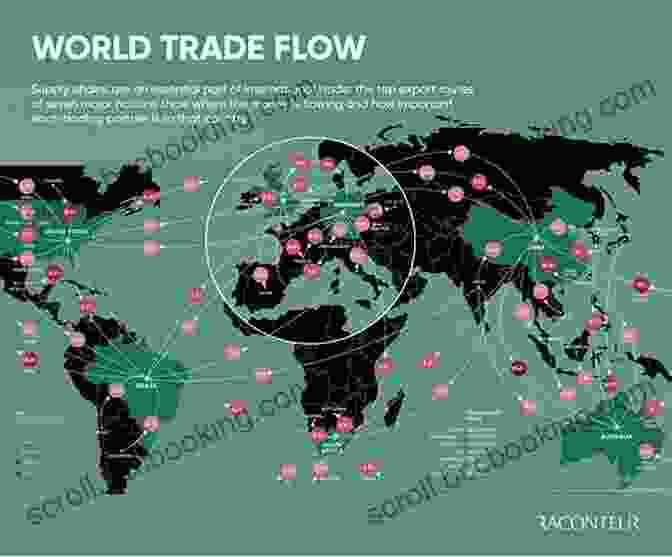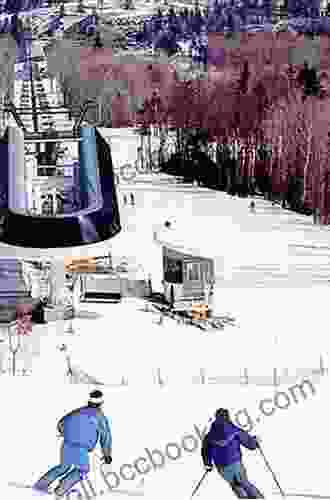From Bretton Woods to the 1990s: Navigating the Evolving Global Economic Landscape

The global economy has undergone a profound transformation over the past century, marked by both periods of stability and volatility. The Bretton Woods system, established in 1944, played a pivotal role in shaping the economic landscape until the 1970s, while the 1990s witnessed significant shifts in international monetary and financial arrangements. This article explores the evolution of the global economy from Bretton Woods to the 1990s, examining the key developments that shaped the world's economic trajectory.
4.4 out of 5
| Language | : | English |
| File size | : | 530 KB |
| Text-to-Speech | : | Enabled |
| Screen Reader | : | Supported |
| Enhanced typesetting | : | Enabled |
| Word Wise | : | Enabled |
| Print length | : | 257 pages |
The Bretton Woods System: Post-War Economic Free Download
In the aftermath of World War II, the Bretton Woods conference in 1944 laid the foundation for a new international economic Free Download. The Bretton Woods system established the International Monetary Fund (IMF) and the World Bank to promote monetary cooperation, stabilize exchange rates, and facilitate economic growth. The system aimed to prevent a repeat of the economic chaos and financial instability that had plagued the world during the interwar period.

Key Features of the Bretton Woods System:
- Fixed Exchange Rates: Currencies were pegged to the US dollar, which was itself convertible into gold at a fixed rate.
- Dollar Dominance: The US dollar became the global reserve currency, and international payments were largely conducted in dollars.
- Controlled Capital Flows: Governments imposed restrictions on the movement of capital across bFree Downloads to prevent destabilizing currency fluctuations.
The End of Bretton Woods: Growing Instability
The Bretton Woods system faced growing pressures in the late 1960s and early 1970s. Inflationary pressures, global imbalances, and the rise of the Eurodollar market challenged the stability of the fixed exchange rate system. In 1971, the US unilaterally suspended the convertibility of the dollar into gold, effectively ending the Bretton Woods system.

Floating Exchange Rates and Globalization
The collapse of the Bretton Woods system ushered in a new era of floating exchange rates. Currencies were no longer pegged to a fixed value, and their value was determined by market forces. This shift increased volatility in currency markets but also allowed countries greater monetary autonomy.
The 1990s witnessed the acceleration of globalization, with increased cross-bFree Download trade and capital flows. The emergence of regional trading blocs, such as the European Union and the North American Free Trade Agreement (NAFTA),reduced trade barriers and facilitated economic integration.

Challenges and Opportunities in the 1990s:
- Financial Crises: The 1997 Asian financial crisis and the 2008 global financial crisis highlighted the risks and vulnerabilities of the globalized financial system.
- Income Inequality: Globalization led to increased economic growth but also contributed to rising income inequality within and between countries.
- Technological Advancements: The emergence of the internet and digital technologies transformed economic activities, creating new opportunities and challenges.
: Shaping the Future of the Global Economy
The journey from Bretton Woods to the 1990s has shaped the global economy in profound ways. The Bretton Woods system provided a framework for post-war economic recovery and growth, while the shift to floating exchange rates and globalization in the 1990s fostered increased economic integration and cross-bFree Download flows.
As we navigate the uncertainties of the 21st century, understanding the evolution of the global economy from Bretton Woods to the 1990s provides valuable insights into the challenges and opportunities that lie ahead. By examining the successes and failures of past economic arrangements, we can better equip ourselves to create a more stable, just, and sustainable global economic system.
4.4 out of 5
| Language | : | English |
| File size | : | 530 KB |
| Text-to-Speech | : | Enabled |
| Screen Reader | : | Supported |
| Enhanced typesetting | : | Enabled |
| Word Wise | : | Enabled |
| Print length | : | 257 pages |
Do you want to contribute by writing guest posts on this blog?
Please contact us and send us a resume of previous articles that you have written.
 Book
Book Novel
Novel Page
Page Chapter
Chapter Text
Text Story
Story Genre
Genre Reader
Reader Library
Library Paperback
Paperback E-book
E-book Magazine
Magazine Newspaper
Newspaper Paragraph
Paragraph Sentence
Sentence Bookmark
Bookmark Shelf
Shelf Glossary
Glossary Bibliography
Bibliography Foreword
Foreword Preface
Preface Synopsis
Synopsis Annotation
Annotation Footnote
Footnote Manuscript
Manuscript Scroll
Scroll Codex
Codex Tome
Tome Bestseller
Bestseller Classics
Classics Library card
Library card Narrative
Narrative Biography
Biography Autobiography
Autobiography Memoir
Memoir Reference
Reference Encyclopedia
Encyclopedia Wilfrid Jonson
Wilfrid Jonson Roderick A Munro
Roderick A Munro Erin Hunter
Erin Hunter Leigh Seddon
Leigh Seddon Ernest Ingersoll
Ernest Ingersoll Michael P Nordvall
Michael P Nordvall Roger Hall
Roger Hall William Cane
William Cane Luma Mufleh
Luma Mufleh Gary Leland
Gary Leland Erika Stalder
Erika Stalder Regine Abel
Regine Abel R N Carole Kramer Arsenault
R N Carole Kramer Arsenault Robin Barratt
Robin Barratt Martin Wolf
Martin Wolf Hans Von Luck
Hans Von Luck Tim Stokes
Tim Stokes Ezekiel J Emanuel
Ezekiel J Emanuel Katherine Wilson
Katherine Wilson Eric Orton
Eric Orton
Light bulbAdvertise smarter! Our strategic ad space ensures maximum exposure. Reserve your spot today!

 Ernest J. GainesRediscover Your Roots and Preserve Family Memories with "From Exile to Eden:...
Ernest J. GainesRediscover Your Roots and Preserve Family Memories with "From Exile to Eden:...
 Jace MitchellMedia Ethics Guide For Professional Conduct: A Comprehensive Guide to Ethical...
Jace MitchellMedia Ethics Guide For Professional Conduct: A Comprehensive Guide to Ethical... Julio CortázarFollow ·5.1k
Julio CortázarFollow ·5.1k Duncan CoxFollow ·13.7k
Duncan CoxFollow ·13.7k Larry ReedFollow ·3.8k
Larry ReedFollow ·3.8k Vincent MitchellFollow ·5.5k
Vincent MitchellFollow ·5.5k John UpdikeFollow ·14.5k
John UpdikeFollow ·14.5k Griffin MitchellFollow ·19.5k
Griffin MitchellFollow ·19.5k Richard AdamsFollow ·18.9k
Richard AdamsFollow ·18.9k Albert CamusFollow ·11.6k
Albert CamusFollow ·11.6k

 Roland Hayes
Roland HayesMagda: A Mother's Love, A Daughter's Redemption - A...
Immerse Yourself in the Captivating True Story...

 Spencer Powell
Spencer PowellSnow White Retold: A Tale of Love, Magic, and...
Once upon a time, in...

 Jake Powell
Jake PowellMaster the SATs with Effective Strategies from 99th...
The SATs are a challenging exam,...

 Brian Bell
Brian BellSEO for Dummies: Unlock the Secrets to Search Engine...
In today's digital...

 Jaylen Mitchell
Jaylen MitchellBechtel: Unveiling the Unsung Heroes Who Built the World
In the annals of global infrastructure, the...
4.4 out of 5
| Language | : | English |
| File size | : | 530 KB |
| Text-to-Speech | : | Enabled |
| Screen Reader | : | Supported |
| Enhanced typesetting | : | Enabled |
| Word Wise | : | Enabled |
| Print length | : | 257 pages |










